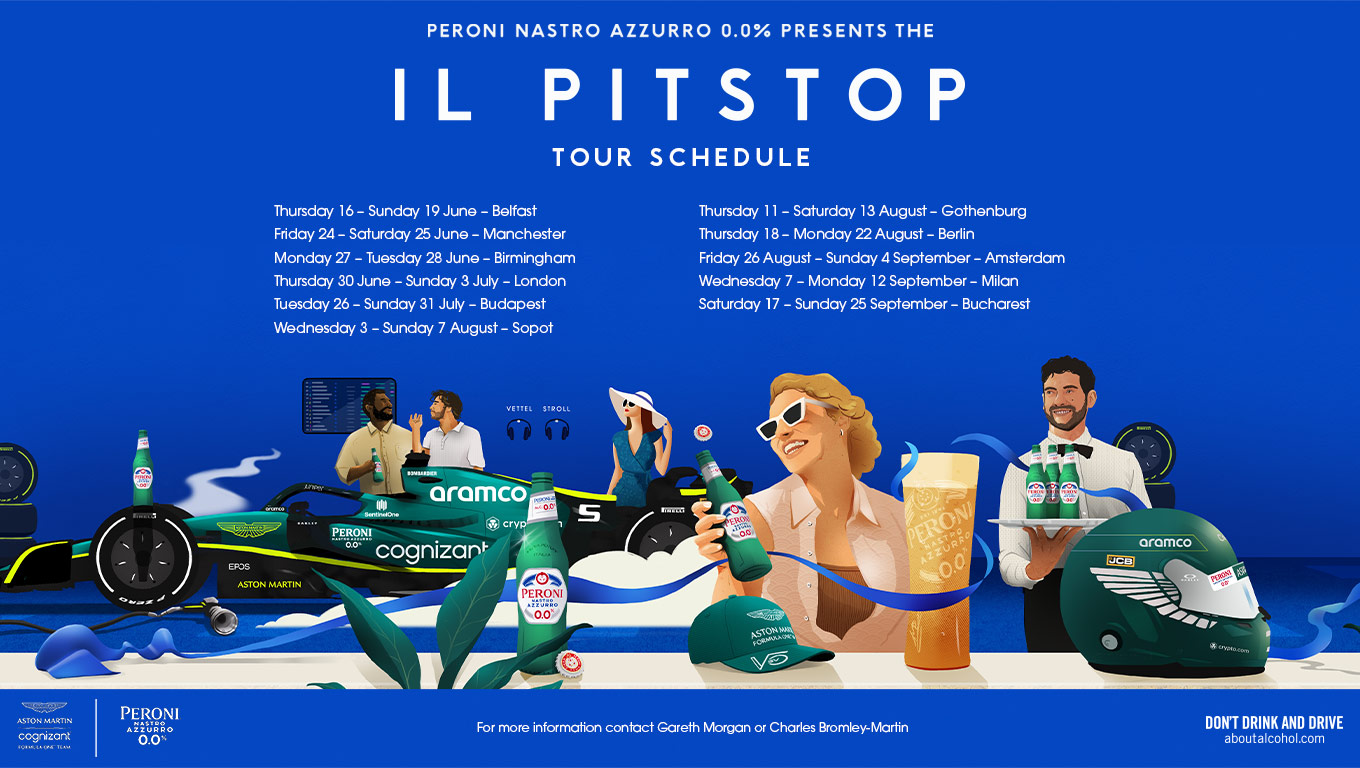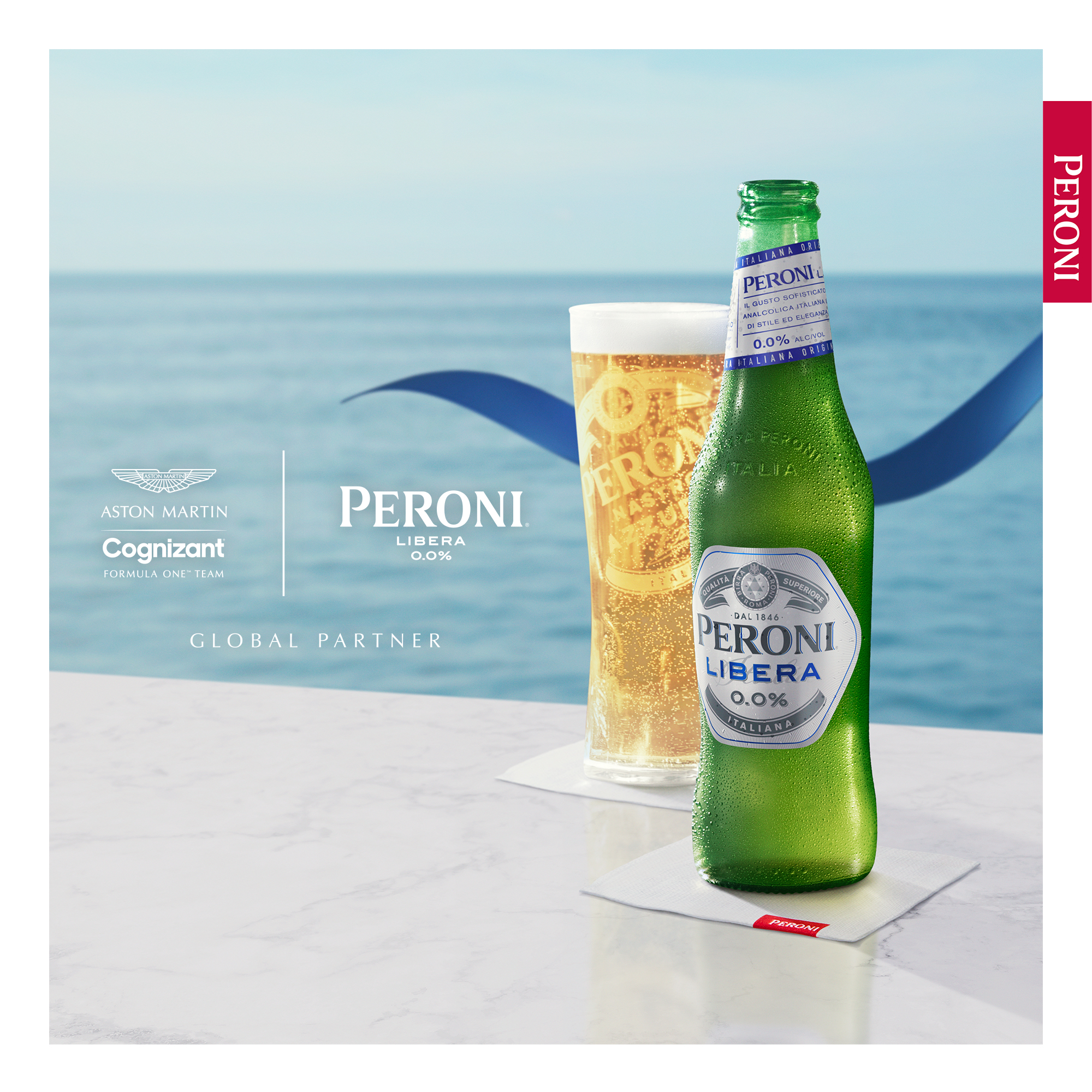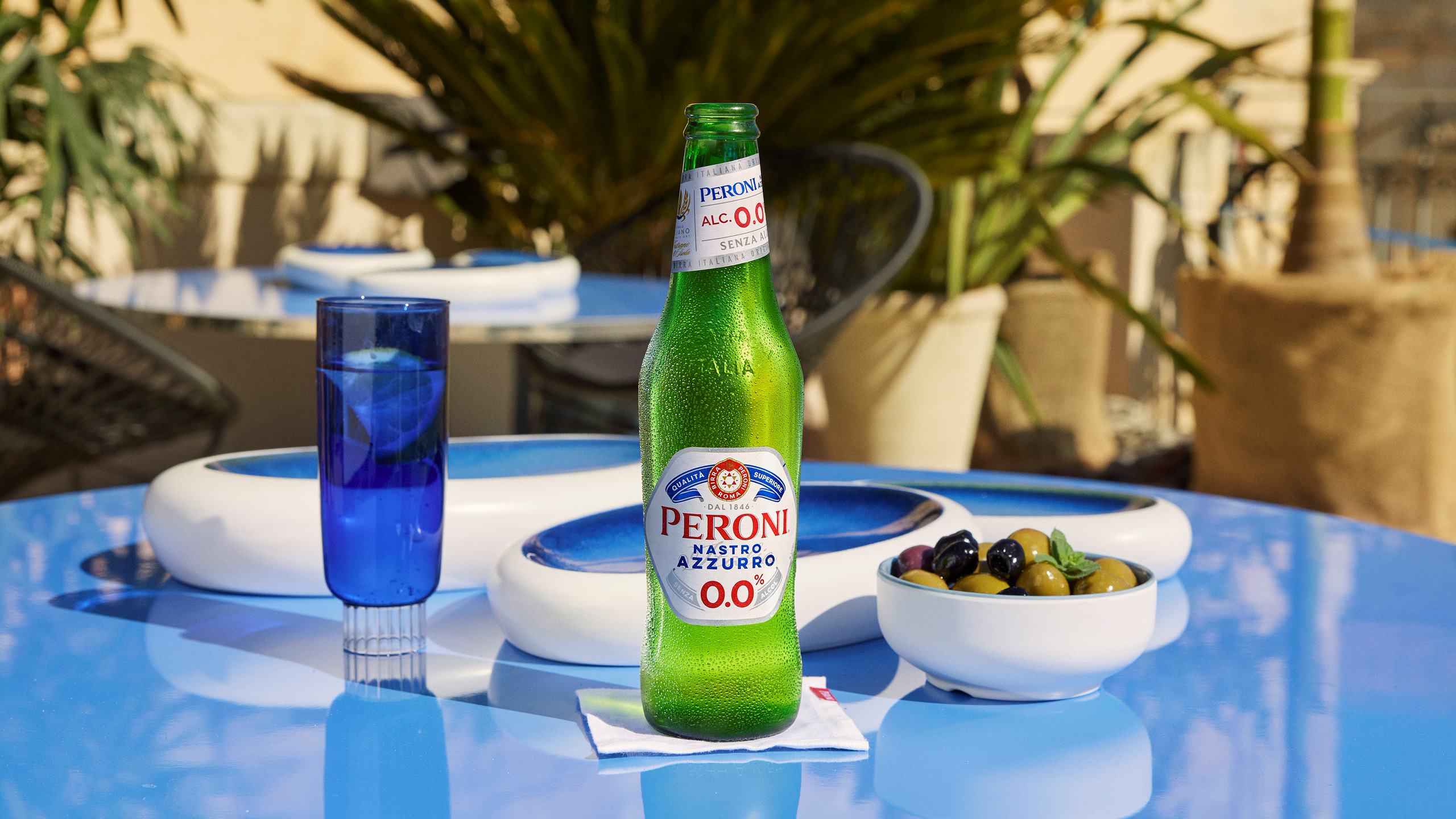This summer our super premium Italian beer brand Peroni Nastro Azzurro 0.0% is bringing fans from across Europe the opportunity to feel the passion from inside the Aston Martin Aramco Cognizant Formula One™ Team garage via a new multi-sensory experience called ‘IL PITSTOP’.
The custom designed mobile, multi-sensory experience will travel across 11 European cities including London, Budapest, Amsterdam and Milan for their British, Hungarian, Dutch and Monza Grand Prix, as well as other key cities including Belfast, Manchester, Birmingham, Sopot, Gothenburg, Berlin and Bucharest.
Guests will have the opportunity to view the Aston Martin Aramco Cognizant Formula One™ Team car up close, and in person whilst also partaking in a pit stop challenge. Guests will also feel transported to the garage with a unique soundscape experience offering them the noise of the AMR22 being drafted into Il Pitstop. Samples of the new Peroni Nastro Azzurro 0.0%, offering the same crisp and refreshing Italian taste experience as Peroni Nastro Azzurro but with 0.0% alcohol will be available to sample.
The IL PITSTOP TOUR SCHEDULE
Belfast - Thursday 16 – Sunday 19 June
Manchester - Friday 24 – Saturday 25 June
Birmingham - Monday 27 – Tuesday 28 June
London - Thursday 30 June – Sunday 3 July
Budapest - Tuesday 26– Sunday 31 July
Sopot - Wednesday 3– Sunday 7 August
Gothenburg - Thursday 11 – Saturday 13 August
Berlin - Thursday 18 – Monday 22 August
Amsterdam - Friday 26 August – Sunday 4 September
Milan - Wednesday 7– Monday 12 September
Bucharest - Saturday 17– Sunday 25 September








